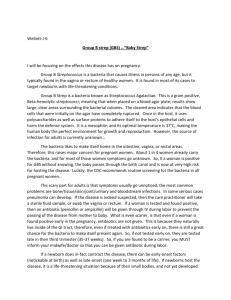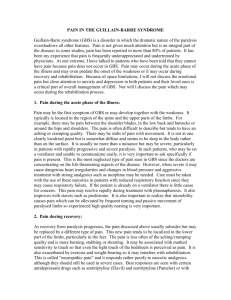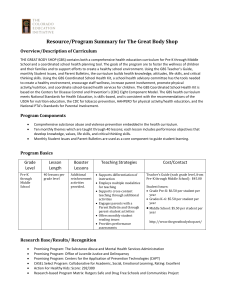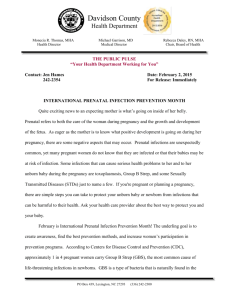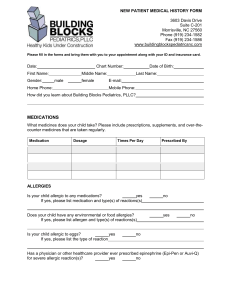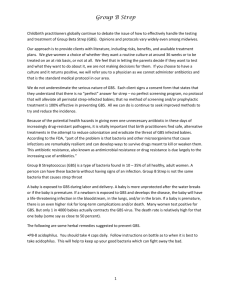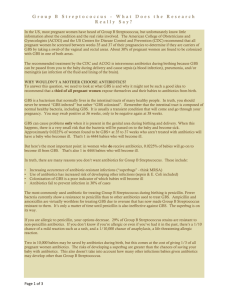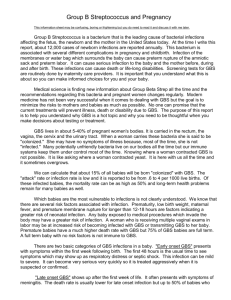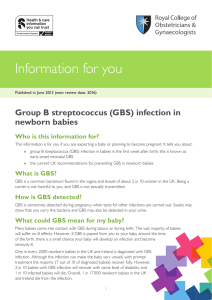Group B Streptococcus (Beta Strep) Infection and Pregnancy
advertisement
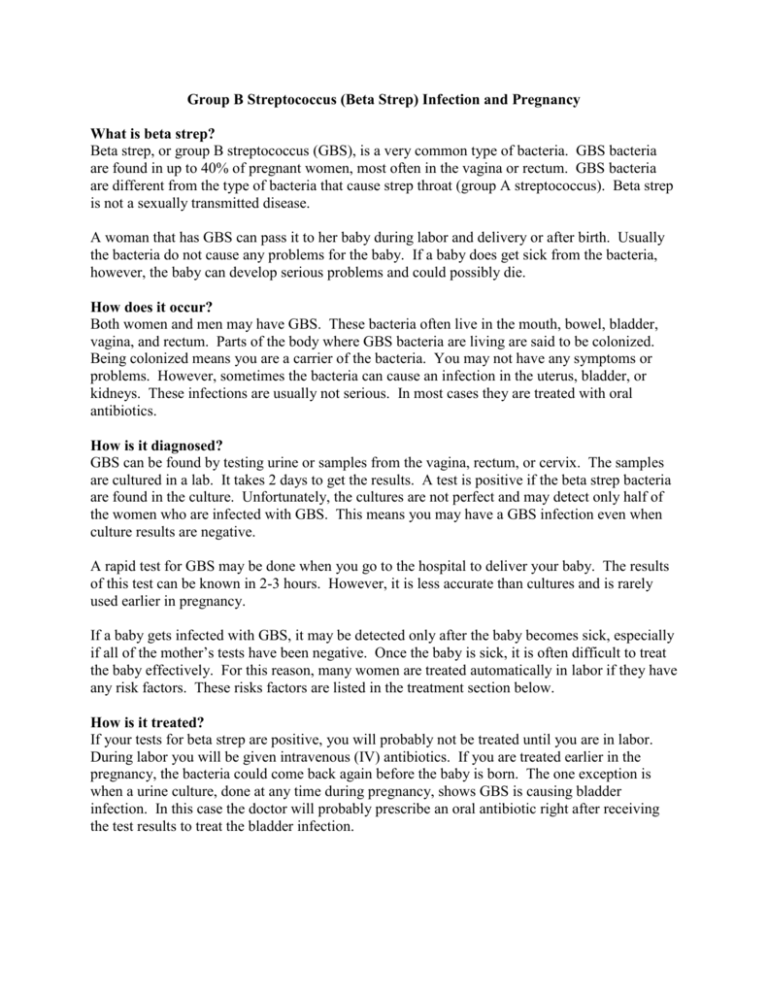
Group B Streptococcus (Beta Strep) Infection and Pregnancy What is beta strep? Beta strep, or group B streptococcus (GBS), is a very common type of bacteria. GBS bacteria are found in up to 40% of pregnant women, most often in the vagina or rectum. GBS bacteria are different from the type of bacteria that cause strep throat (group A streptococcus). Beta strep is not a sexually transmitted disease. A woman that has GBS can pass it to her baby during labor and delivery or after birth. Usually the bacteria do not cause any problems for the baby. If a baby does get sick from the bacteria, however, the baby can develop serious problems and could possibly die. How does it occur? Both women and men may have GBS. These bacteria often live in the mouth, bowel, bladder, vagina, and rectum. Parts of the body where GBS bacteria are living are said to be colonized. Being colonized means you are a carrier of the bacteria. You may not have any symptoms or problems. However, sometimes the bacteria can cause an infection in the uterus, bladder, or kidneys. These infections are usually not serious. In most cases they are treated with oral antibiotics. How is it diagnosed? GBS can be found by testing urine or samples from the vagina, rectum, or cervix. The samples are cultured in a lab. It takes 2 days to get the results. A test is positive if the beta strep bacteria are found in the culture. Unfortunately, the cultures are not perfect and may detect only half of the women who are infected with GBS. This means you may have a GBS infection even when culture results are negative. A rapid test for GBS may be done when you go to the hospital to deliver your baby. The results of this test can be known in 2-3 hours. However, it is less accurate than cultures and is rarely used earlier in pregnancy. If a baby gets infected with GBS, it may be detected only after the baby becomes sick, especially if all of the mother’s tests have been negative. Once the baby is sick, it is often difficult to treat the baby effectively. For this reason, many women are treated automatically in labor if they have any risk factors. These risks factors are listed in the treatment section below. How is it treated? If your tests for beta strep are positive, you will probably not be treated until you are in labor. During labor you will be given intravenous (IV) antibiotics. If you are treated earlier in the pregnancy, the bacteria could come back again before the baby is born. The one exception is when a urine culture, done at any time during pregnancy, shows GBS is causing bladder infection. In this case the doctor will probably prescribe an oral antibiotic right after receiving the test results to treat the bladder infection. Because infection of the baby can cause serious problems, you may be treated automatically during labor if you have any risk factors for beta strep infection, even if the test results are negative. The risk factors are: Preterm (labor that begins before 37 weeks of pregnancy) Preterm premature rupture of membranes (water breaking before 37 weeks of pregnancy) Membranes ruptured longer than 18 hours A previous child with beta strep infection Fever (higher than 100.4 degrees F) during labor. Treatment with IV antibiotics during labor is usually very effective. Babies rarely develop the serious side effects of early GBS infection with this treatment. If a newborn develops any signs or symptoms of possible GBS infection, the baby is treated with IV antibiotics and observed very closely. The baby may be placed in a special intensive care unit. How long will the effects of GBS last? A woman who has GBS does not usually have any symptoms of illness or long-lasting effects. The main risk is that the newborn will be sick at or after birth. Most babies exposed to GBS do not become ill from GBS infection. However, when a newborn is infected with GBS, the infection can affect the blood, brain, spinal cord, or lungs. These infections can be very serious. The baby may have long-term problems if meningitis develops. The baby might die. GBS infections can be very dangerous to your baby. For this reason, if you have a positive GBS test or any of the risk factors, you will probably be treated with antibiotics during labor. This greatly reduces risk to your baby. This content is reviewed periodically and is subject to change as new health information becomes available. The information is intended to inform and educate and is not a replacement for medical evaluation, advice, diagnosis or treatment by a healthcare professional.
